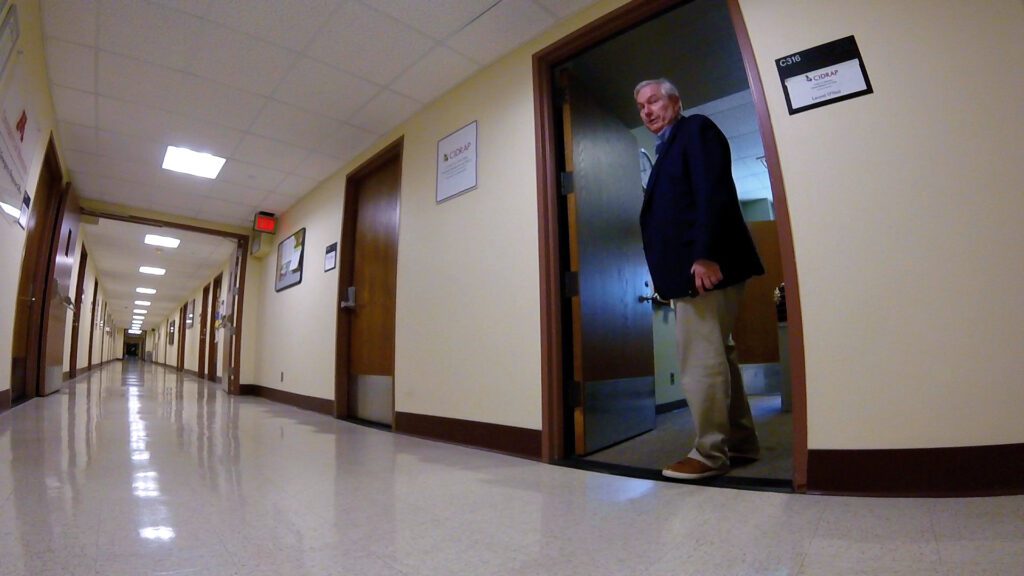The pandemic is over. But Dr. Michael Osterholm is still studying — and now fighting — COVID
Three years into the pandemic, Dr. Michael Osterholm finally became one of the statistics he famously projected to the world.
Not only did the longtime infectious disease expert become infected with COVID-19 for the first time this spring — he also developed long COVID.
“It’s been a difficult few months, so I’m feeling it,” he said in a recent interview with 5 INVESTIGATES. “I can’t do many of the athletic things I did before.”

Osterholm is the Director of the Center for Infectious Disease Research and Policy at the University of Minnesota. He previously worked for the Minnesota Department of Health and the Centers for Disease Control and Prevention.
During the pandemic, his projections and downright scary predictions also earned him the nickname “Dr. Doom.”
“My job is to tell the truth. My job is to make it clear when we know what we know and why we know it and what we don’t know and what we’re going to do to find out,” he said.
For most people, life is back to normal now that the pandemic is officially over. But that’s not the case for Osterholm, who became a household name as the disease killed more than 1 million people in this country.
When he’s not working with his team on vaccine development, he’s recording his new podcast which he says has amassed a loyal following around the world.
Just last month, he and his colleagues on the president’s COVID-19 transition team wrote an op-ed in the New York Times about the 13 takeaways for the next health emergency.
Number three on the list: Trust is Crucial.
“I think that we in public health did see a major erosion of trust,” Osterholm told 5 INVESTIGATES. “Part of it was, I think, we seriously lacked humility. We should have, as a public health profession, made it clear from the very beginning of the pandemic there are a lot of questions we can’t answer.”
How to rebuild that eroded trust is a question Osterholm admits he can’t answer.
“I wish I knew,” he said. “I think what we have to do is be truthful about what we know.”
Osterholm is also now working on a new book about the lessons learned in order to be better prepared for the next pandemic which he is convinced will happen.
“I can say for certain that we’re going to see more pandemics, whether it was the big one that happens in your lifetime. I don’t know. I hope not.”